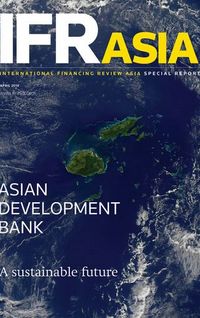New World Bank President David Malpass said he would not alter the lender’s commitment to fight climate change, but pledged to step up its anti-poverty mission and to evolve the bank’s relationship with China.
Malpass, who started at the Bank on April 9, was nominated by US President Donald Trump. Some development professionals feared that he would pursue Trump’s “America First” agenda at the bank by resuming financing for coal power projects and pressuring China.
But Malpass told reporters that he will pursue the World Bank’s climate change goals, including its previous decision to withdraw from coal power funding. He called climate change a “key problem” facing many of the world’s developing countries.
“The board and the governors have established a policy on that. I don’t expect a change in that policy,” Malpass said.
A long-time finance executive, economist and government development official, Malpass most recently served as the US Treasury’s undersecretary for international affairs. He helped negotiate a US$13bn capital increase for the World Bank last year.
That refunding included requirements that the bank shift lending away from middle-income countries, including China.
Malpass at the time was highly critical of China’s continued borrowing from the World Bank and of its Belt and Road initiative. But he said on taking office that new lending to Chinese projects was already declining and the relationship would shift towards one of increased contributions to the bank and sharing of expertise.
“That means an evolution where they are much less of a borrower, and they have more to offer in terms of their participation in capital increases, their participation in IDA, where China has been ramping up its contributions,” he said, referring to the International Development Association, the World Bank’s fund for the poorest countries.
He said he would work with China to raise the standards of its development projects, with more debt transparency and open procurement standards.
His view on China contrasted with that of US Treasury Secretary Steven Mnuchin, who told lawmakers that Malpass’s presence at the World Bank would help the US compete with China’s Belt and Road initiative.
Asked at a House Financial Services Committee hearing on April 9 what the US could do to “push back” on China’s growing presence in international development, Mnuchin replied, “I think the single best thing is that David Malpass, who was my undersecretary, is now head of the World Bank.”
The World Bank, combined with a new US development agency created by Congress last year, “can be a serious competitor to their Belt and Road,” Mnuchin added.
Malpass said he saw no need for a restructuring of the World Bank’s operations, but he would seek to make lending more effective at lifting people out of poverty.
To see the digital version of this roundtable, please click here
To purchase printed copies or a PDF of this report, please email gloria.balbastro@tr.com


